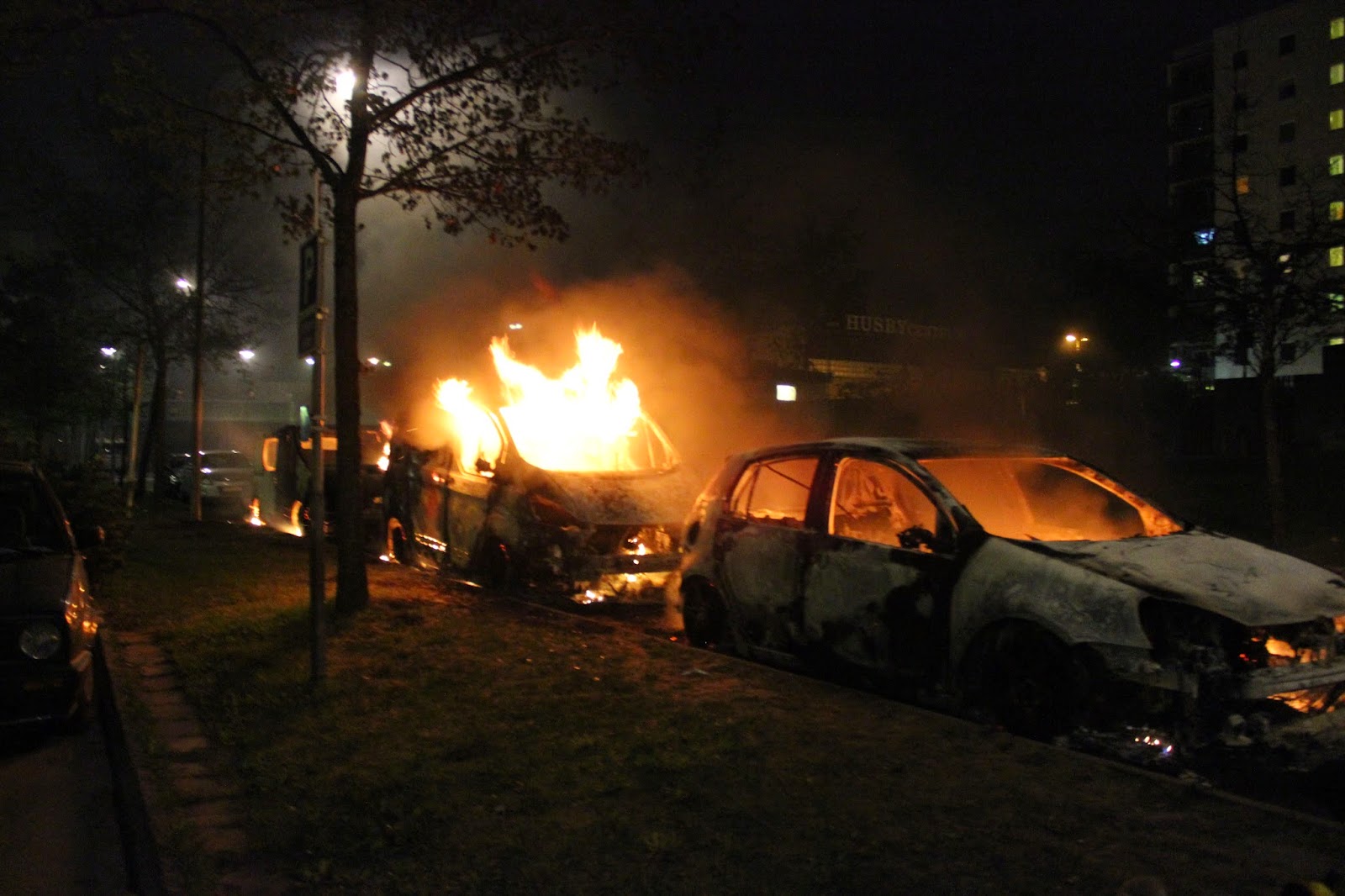Over and over again, the common theme in the protesters and the residents' comments was that these people wanted to be heard. I believe that. While professional protesters and the media elevate tensions, one cannot ignore the real feelings of frustration, entrapment, and profiling those that come from the inner city experience throughout their lives. These people scream in the only way they know, with the violence that has surrounded them.
Are the Right People Listening?
I don't condone riots. This kind of lashing out is childish in its makeup. Those that want a better civilization may protest, but they can protest in a more civilized manner, a fact that Martin Luther King, Jr proved during his life. Besides, screaming frustration doesn't fix anything. You have to get the right message to the right listeners in order for it to be effective.What is the real message? Who are those that should be listening? If I had to identify the primary disadvantage young blacks face today, I would immediately say it's the lack of fathers in black families. While stats like high school graduation rates for young blacks have risen to historic highs, according to the Pew Center,1 the number of black children being raised in an intact household has dropped enormously. NewsOne reports that 72 percent of black children are born into a single parent household.2 That means while one out of four people in the U.S. start their lives in a single-parent household, nearly three out of four black families do. That's a huge discrepancy.
The consequences of fatherless homes are well known. Children in father-absent homes are almost four times more likely to be poor3, twice as likely to be abused, and suffer from higher rates of school failure, behavioral problems, drug use, and loneliness.4 They are 5 times more likely to commit suicide, 32 times more likely to run away, 14 times more likely to commit rape, 20 times more likely to have behavioral disorders, 20 times more likely to end up in prison, and children born to single mothers show higher levels of aggressive behavior than children born to married mothers.5
To me, the protests resemble a tantrum. In poorer communities, a single mother must work to provide an income since a father isn't there to do so. This not only puts incredible pressure on her, but forces the kids to raise themselves. Without a father, there is no anchor to propel the family upward economically or to model what it means to be an adult male in society. All of this was clearly laid out in 1965 in the Moynihan Report, diagnosing the problem of black stagnant economic mobility.6
As I write this, the United States Supreme Court is hearing oral arguments from those who seek to redefine marriage in the United States. Yet, for those who grew up in a culture where marriage was considered optional, where children are brought up without both biological parents committed to rearing them, the results are devastating.
There is no easy answer to the problems in places like Baltimore, or Ferguson, or South-Central Los Angeles. That's because there are no fathers to hear the screams of these children. It's easy to condemn the rioters, and their actions need to be condemned, but the problem cannot be solved by a different police force or a different educational system. To nurture civilly, one must nurture the building blocks of civilization itself, and all civilizations are built upon the family.
References
1. Fry, Richard. "U.S. High School Dropout Rate
Reaches Record Low, Driven by Improvements among Hispanics, Blacks." Pew
Research Center. Pew Research Center, 02 Oct. 2014. Web. 28 Apr. 2015.
http://www.pewresearch.org/fact-tank/2014/10/02/u-s-high-school-dropout-rate-reaches-record-low-driven-by-improvements-among-hispanics-blacks/.
2. NewsOneStaff. “72 Percent Of Black Kids Raised By Single Parent, 25% Overall In U.S.” NewsOne. Interactive Media, 2011. Web. 27 Apr. 2011. http://newsone.com/1195075/children-single-parents-u-s-american/
3. “Statistics and Data on the Consequences of Father Absence and the Benefits of Father Involvement.” National Fatherhood Initiative. National Fatherhood Initiative, 2014. Web. http://www.fatherhood.org/statistics-on-father-absence-download
4. Wilcox, Brad. “Why Marriage Matters: Thirty Conclusions from the Social Sciences.” National Marriage Project. National Marriage Project, 16 Aug. 2011. Web. http://nationalmarriageproject.org/wp-content/uploads/2012/06/WMM_summary.pdf
5. O'Block, Robert. “Roots of Uncertainty.” Annals of Psychotherapy and Investigative Health, Spring 2008. American Psychotherapy Association. Web. http://www.annalsofpsychotherapy.com/articles/spring08.php?topic=article9
6. Moynihan, Daniel P. The Negro Family: The Case For National Action. Rep. Washington, DC: Office of Policy Planning and Research United States Department of Labor, 1965. Print.
Image courtesy Telefonkiosk - Own work. Licensed under CC BY-SA 3.0.
2. NewsOneStaff. “72 Percent Of Black Kids Raised By Single Parent, 25% Overall In U.S.” NewsOne. Interactive Media, 2011. Web. 27 Apr. 2011. http://newsone.com/1195075/children-single-parents-u-s-american/
3. “Statistics and Data on the Consequences of Father Absence and the Benefits of Father Involvement.” National Fatherhood Initiative. National Fatherhood Initiative, 2014. Web. http://www.fatherhood.org/statistics-on-father-absence-download
4. Wilcox, Brad. “Why Marriage Matters: Thirty Conclusions from the Social Sciences.” National Marriage Project. National Marriage Project, 16 Aug. 2011. Web. http://nationalmarriageproject.org/wp-content/uploads/2012/06/WMM_summary.pdf
5. O'Block, Robert. “Roots of Uncertainty.” Annals of Psychotherapy and Investigative Health, Spring 2008. American Psychotherapy Association. Web. http://www.annalsofpsychotherapy.com/articles/spring08.php?topic=article9
6. Moynihan, Daniel P. The Negro Family: The Case For National Action. Rep. Washington, DC: Office of Policy Planning and Research United States Department of Labor, 1965. Print.
Image courtesy Telefonkiosk - Own work. Licensed under CC BY-SA 3.0.

No comments:
Post a Comment